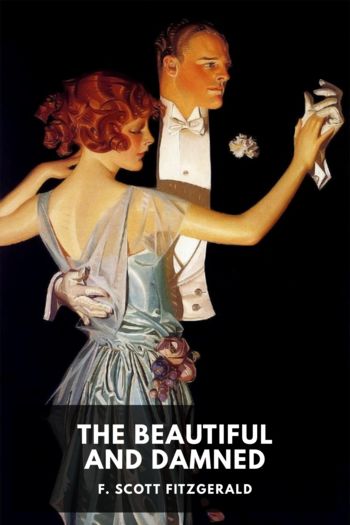Twelve Years a Slave by Solomon Northup (books to read to get smarter .txt) 📕

- Author: Solomon Northup
Book online «Twelve Years a Slave by Solomon Northup (books to read to get smarter .txt) 📕». Author Solomon Northup
Marksville, although occupying a prominent position, and standing out in impressive italics on the map of Louisiana, is, in fact, but a small and insignificant hamlet. Aside from the tavern, kept by a jolly and generous boniface, the court house, inhabited by lawless cows and swine in the seasons of vacation, and a high gallows, with its dissevered rope dangling in the air, there is little to attract the attention of the stranger.
Solomon Northup was a name Mr. Waddill had never heard, but he was confident that if there was a slave bearing that appellation in Marksville or vicinity, his black boy Tom would know him. Tom was accordingly called, but in all his extensive circle of acquaintances there was no such personage.
The letter to Parker and Perry was dated at Bayou Boeuf. At this place, therefore, the conclusion was, I must be sought. But here a difficulty suggested itself, of a very grave character indeed. Bayou Boeuf, at its nearest point, was twenty-three miles distant, and was the name applied to the section of country extending between fifty and a hundred miles, on both sides of that stream. Thousands and thousands of slaves resided upon its shores, the remarkable richness and fertility of the soil having attracted thither a great number of planters. The information in the letter was so vague and indefinite as to render it difficult to conclude upon any specific course of proceeding. It was finally determined, however, as the only plan that presented any prospect of success, that Northup and the brother of Waddill, a student in the office of the latter, should repair to the Bayou, and traveling up one side and down the other its whole length, inquire at each plantation for me. Mr. Waddill tendered the use of his carriage, and it was definitely arranged that they should start upon the excursion early Monday morning.
It will be seen at once that this course, in all probability, would have resulted unsuccessfully. It would have been impossible for them to have gone into the fields and examine all the gangs at work. They were not aware that I was known only as Platt; and had they inquired of Epps himself, he would have stated truly that he knew nothing of Solomon Northup.
The arrangement being adopted, however, there was nothing further to be done until Sunday had elapsed. The conversation between Messrs. Northup and Waddill, in the course of the afternoon, turned upon New York politics.
“I can scarcely comprehend the nice distinctions and shades of political parties in your state,” observed Mr. Waddill. “I read of soft-shells and hard-shells, hunkers and barnburners, woolly-heads and silver-grays, and am unable to understand the precise difference between them. Pray, what is it?”
Mr. Northup, refilling his pipe, entered into quite an elaborate narrative of the origin of the various sections of parties, and concluded by saying there was another party in New York, known as free-soilers or abolitionists. “You have seen none of those in this part of the country, I presume?” Mr. Northup remarked.
“Never, but one,” answered Waddill, laughingly. “We have one here in Marksville, an eccentric creature, who preaches abolitionism as vehemently as any fanatic at the North. He is a generous, inoffensive man, but always maintaining the wrong side of an argument. It affords us a deal of amusement. He is an excellent mechanic, and almost indispensable in this community. He is a carpenter. His name is Bass.”
Some further good-natured conversation was had at the expense of Bass’ peculiarities, when Waddill all at once fell into a reflective mood, and asked for the mysterious letter again.
“Let me see—l-e-t m-e s-e-e!” he repeated, thoughtfully to himself, running his eyes over the letter once more. “ ‘Bayou Boeuf, August 15.’ August 15—postmarked here. ‘He that is writing for me—’ Where did Bass work last summer?” he inquired, turning suddenly to his brother. His brother was unable to inform him, but rising, left the office, and soon returned with the intelligence that “Bass worked last summer somewhere on Bayou Boeuf.”
“He is the man,” bringing down his hand emphatically on the table, “who can tell us all about Solomon Northup,” exclaimed Waddill.
Bass was immediately searched for, but could not be found. After some inquiry, it was ascertained he was at the landing on Red River. Procuring a conveyance, young Waddill and Northup were not long in traversing the few miles to the latter place. On their arrival, Bass was found, just on the point of leaving, to be absent a fortnight or more. After an introduction, Northup begged the privilege of speaking to him privately a moment. They walked together towards the river, when the following conversation ensued:
“Mr. Bass,” said Northup, “allow me to ask you if you were on Bayou Boeuf last August?”
“Yes, sir, I was there in August,” was the reply.
“Did you write a letter for a colored man at that place to some gentleman in Saratoga Springs?”
“Excuse me, sir, if I say that is none of your business,” answered Bass, stopping and looking his interrogator searchingly in the face.
“Perhaps I am rather hasty, Mr. Bass; I beg your pardon; but I have come from the state of New York to accomplish the purpose the writer of a letter dated the 15th of August, postmarked at Marksville, had in view. Circumstances have led me to think that you are perhaps the man who wrote it. I am in search of Solomon Northup. If you know him, I beg you to inform me





Comments (0)